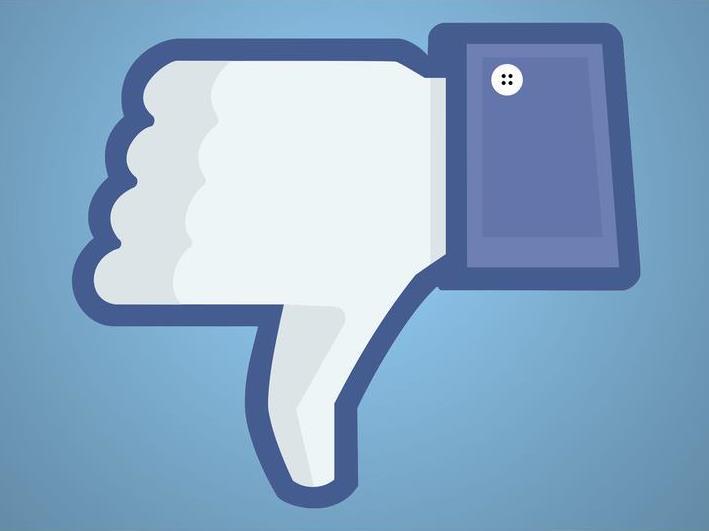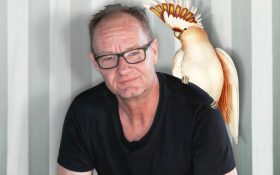Image via Mashable
How often have I seen it? A theatre producer arrives at the foyer for opening night, visits the box office, checks out the bookings, then goes pale.
Panicked, he or she opens their smart phone, looks at their Facebook page, checks the ‘event’, checks the ‘group’ then looks back at the bookings. Then they do a very theatrical double-take.
Finally, in tragic tones of Shakespearean dimensions (and shaking their fist at the heavens – or is it the virtual ether above?), they shout ‘But they all said they were coming on Facebook!’
And there’s the rub. As the Bard might have said: ‘A Facebook like doth not a ticket sale make.’
In the rush to embrace do-it-yourself communication, perhaps cut corners, cut costs and convince themselves that they have it all under control, too many theatre-makers have succumbed to the myth that social media is everything. That simply collecting countless ‘friends’ who (hopefully) themselves have countless ‘friends’ will guarantee a paying audience for their shows.
Sadly, it’s not that simple. And it was never going to be. As my many years in consumer affairs and the media taught me, something that seems too good to be true is – invariably – just that.
Let’s debunk the myth right now and learn some savvy lessons that might just save you and your next show from disaster. Here’s the hard truth.
- Your FB ‘friends’ are not really your friends.
Ask yourself: do I know all these people? Lovely as they are and deeply as I respect them all (‘love your work – mwah, mwah dahling’) can I really expect them all to come to my latest show? Will they really share the invitation to my show? And will those ‘friends’ of ‘friends’ be interested? Even your real friends and family may feel you pushed them too far, too often so what hope for these virtual friends? All the ‘liking’ and ‘accepting’ and ‘joining’ has little effect on whether any of these people actually buy a ticket?
- Most artists’ FB friends are other artists.
How many requests, invitations, plugs and promos do you receive per day via social media? Now, be honest: how many do you respond to? How many do you act upon? Many of your social media network are probably interested – even supportive. But you really can’t expect them to always vote with their feet – much less with their wallets. Clicking and ticking is not ticketing. Voting with mice is nice… but talk is cheap. Until they actually buy a ticket, they are chickens you can’t count on. And as for eggs and baskets… more below! - Social Networking is just that – no more.
Don’t mistake social media for publicity. It ain’t. Yes, it’s a powerful means of reaching other people who are one – maybe even two or three – degrees of separation away. But it won’t reach new audiences like media publicity will nor target specific potential audiences like advertising. So don’t count on it to do more than it was designed for. And remember, if you use it for promotion, it is – transparently – self-promotion. - Promoting a show properly requires using Marketing, Publicity and Social Media. All three. There’s no way around it.
The strategy of marketing and promotions is a specialised area and economising on one of the three key pillars is false economy. Here’s why:
Marketing is promotion direct to consumers via advertising, flyers, posters and much more. It costs you money but you control the message, as well as when and how it appears. You’re blowing your own trumpet, but at least it’s loud. It can be expensive… but not always. How you spend your marketing dollar is a matter of careful strategy, well worth professional advice.
Publicity is the promotion of your show via the media. Free editorial via journalists and editors. Newspapers, magazines, radio, TV, speciality websites and other new media. It doesn’t cost you and it carries the weight of third-party endorsement, the cache of editorial behind it, not just your own tub-thumping. You can’t control it but in the hands of a skilled publicist and their close relationships with comprehensive, targeted contacts, you can reach many, many new readers, listeners and viewers. You can also access reviewers and VIP industry guests with the capacity to further advance your agenda. The benefits are obvious – especially for companies whose budget may not stretch to expensive advertising so it’s worth paying a professional to do it properly.
PR is not just about bums on seats. Media publicity delivers credible public profile to your creative team which rewards them for their efforts and gains them wider professional recognition. It enhances your company reputation and reinforces your ‘brand’. That’s an additional investment in longer-term gains.
Social Media use the tools we all have at our fingertips to reach out to other individuals. Facebook, Twitter, Tumbler, Pinterest and more. You may be tempted to ‘go it alone’ here too. However, if you’re serious about promoting your professional show professionally, it’s worth getting expert advice about how to make the most of these powerful tools. Don’t put all your eggs in this one basket… but, by the same token, don’t cook your golden goose to make thin soup! It won’t go very far.
You and all your creative team pour blood, sweat and tears, time and money into producing a show. It makes sense to give it every chance to get the audience it deserves using every sensible means possible.
Rather than spraying random, unfocussed material into the vast, virtual beyond, be promo-smart and cover all bases. You can’t afford not to.
Geoff Sirmai is the director of Sirmai Arts Marketing and author of both You and Your Publicist and The Confident Consumer (Allen & Unwin)
www.sirmai.com.au




